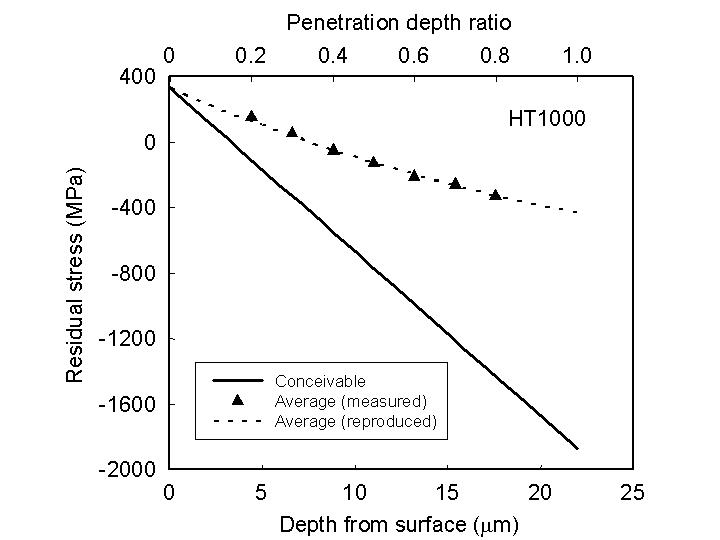Non-destructive measurement of residual stress depth profile on steel treated by Laser-Peening
問い合わせ番号
SOL-0000000909
ビームライン
BL19B2(X線回折・散乱 II)
学術利用キーワード
| A. 試料 | 無機材料 |
|---|---|
| B. 試料詳細 | 金属・合金 |
| C. 手法 | X線回折 |
| D. 手法の詳細 | 広角散乱 |
| E. 付加的測定条件 | 表面, 室温 |
| F. エネルギー領域 | X線(4~40 keV) |
| G. 目的・欲しい情報 | 欠陥、転位、歪み |
産業利用キーワード
| 階層1 | 機械, 金属, 建設, 工業材料 |
|---|---|
| 階層2 | 構造材(鉄、非鉄) |
| 階層3 | |
| 階層4 | 残留応力 |
| 階層5 | 回折 |
分類
A80.20 金属・構造材料, M10.80 歪み解析
利用事例本文
In this solution, X-ray diffraction was applied to steel treated by laser-peening to analyze depth profile of residual stress at the surface. By controlling incident and take-off angle of X-rays to the sample surface, penetration depth of X-ray is tuned. These data reveal the dependence of the process on the depth profile of residual stress at the surface treated by laser-peening.
Depth profile of residual stress in steel treated by laser-peening
画像ファイルの出典
所内報
誌名
SPring-8 Experimental Report No.13 (2004A)
ページ
p.111
測定手法
X-ray residual stress measurement is performed by observing dependence of scattering angle on sample orientation to incident X-ray. This technique enables non-destructive observation of depth profile of residual stress in sample.
画像ファイルの出典
図なし
測定準備に必要なおおよその時間
9 シフト
測定装置
| 装置名 | 目的 | 性能 |
|---|---|---|
| Multi-axis diffractometer | X-ray diffraction measurement | 4axes and 2axes |
参考文献
関連する手法
アンケート
本ビームラインの主力装置を使っている
測定の難易度
中程度
データ解析の難易度
中程度
図に示した全てのデータを取るのにかかったシフト数
4~9シフト
